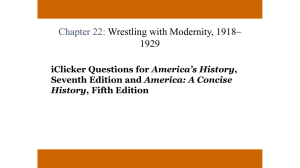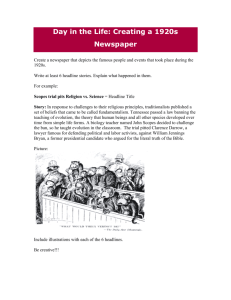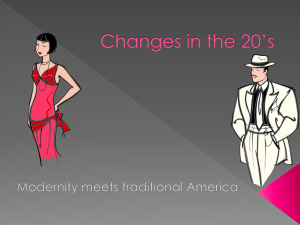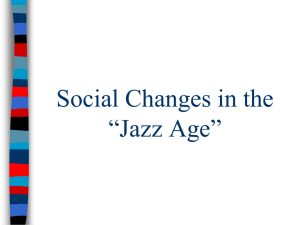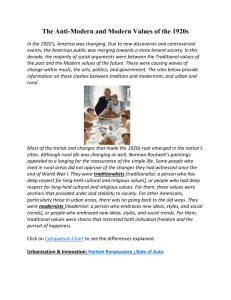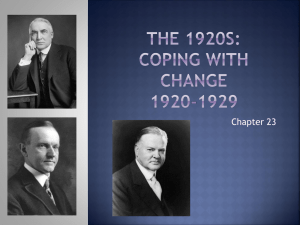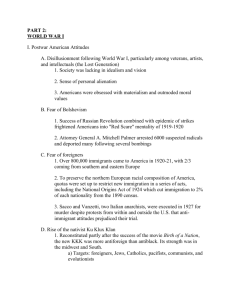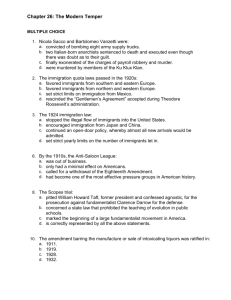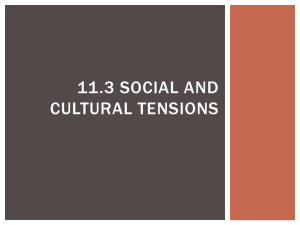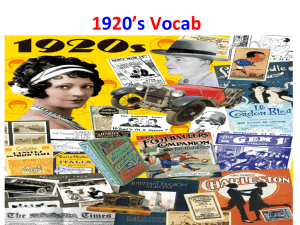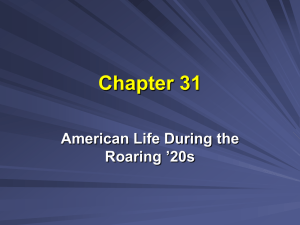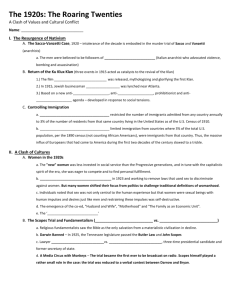20.3 Social And Cultural Tensions As the 1920s began, striking
advertisement
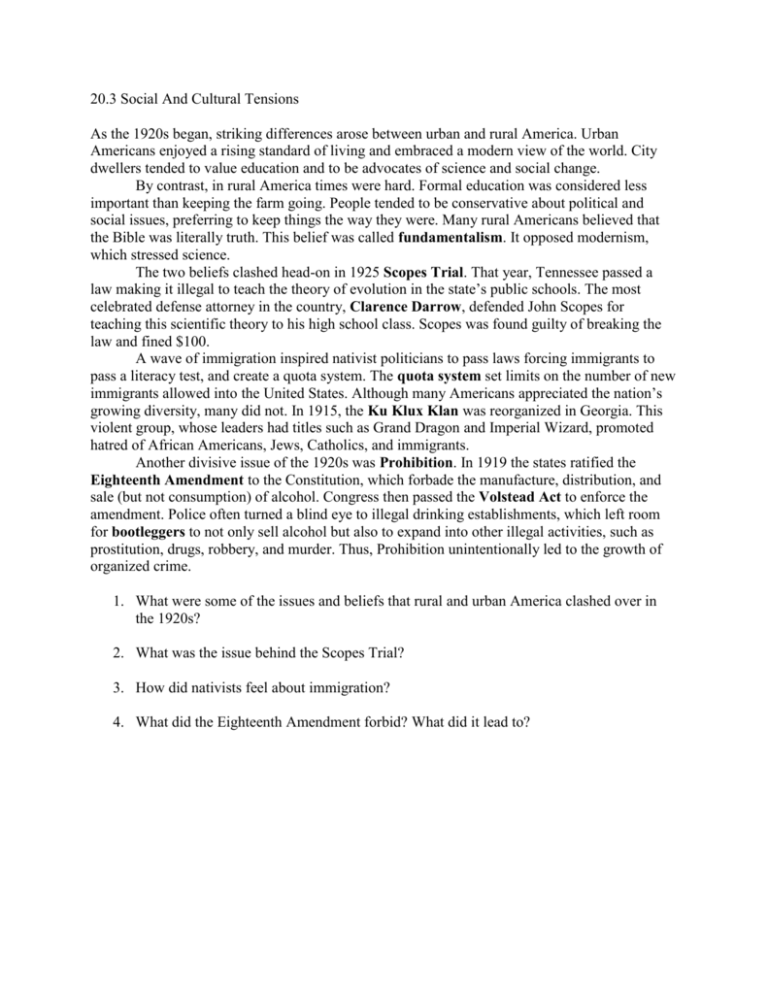
20.3 Social And Cultural Tensions As the 1920s began, striking differences arose between urban and rural America. Urban Americans enjoyed a rising standard of living and embraced a modern view of the world. City dwellers tended to value education and to be advocates of science and social change. By contrast, in rural America times were hard. Formal education was considered less important than keeping the farm going. People tended to be conservative about political and social issues, preferring to keep things the way they were. Many rural Americans believed that the Bible was literally truth. This belief was called fundamentalism. It opposed modernism, which stressed science. The two beliefs clashed head-on in 1925 Scopes Trial. That year, Tennessee passed a law making it illegal to teach the theory of evolution in the state’s public schools. The most celebrated defense attorney in the country, Clarence Darrow, defended John Scopes for teaching this scientific theory to his high school class. Scopes was found guilty of breaking the law and fined $100. A wave of immigration inspired nativist politicians to pass laws forcing immigrants to pass a literacy test, and create a quota system. The quota system set limits on the number of new immigrants allowed into the United States. Although many Americans appreciated the nation’s growing diversity, many did not. In 1915, the Ku Klux Klan was reorganized in Georgia. This violent group, whose leaders had titles such as Grand Dragon and Imperial Wizard, promoted hatred of African Americans, Jews, Catholics, and immigrants. Another divisive issue of the 1920s was Prohibition. In 1919 the states ratified the Eighteenth Amendment to the Constitution, which forbade the manufacture, distribution, and sale (but not consumption) of alcohol. Congress then passed the Volstead Act to enforce the amendment. Police often turned a blind eye to illegal drinking establishments, which left room for bootleggers to not only sell alcohol but also to expand into other illegal activities, such as prostitution, drugs, robbery, and murder. Thus, Prohibition unintentionally led to the growth of organized crime. 1. What were some of the issues and beliefs that rural and urban America clashed over in the 1920s? 2. What was the issue behind the Scopes Trial? 3. How did nativists feel about immigration? 4. What did the Eighteenth Amendment forbid? What did it lead to?
